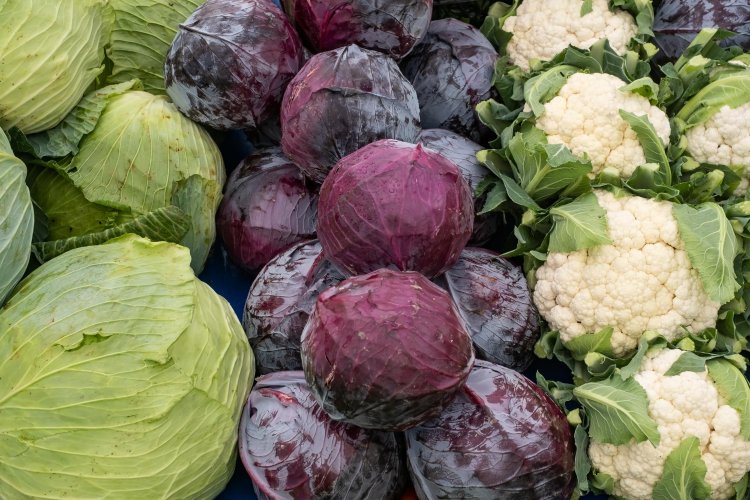Health on Your Plate: Harnessing the Power of Cruciferous Vegetables
Cruciferous vegetables, characterized by their four-petal flowers resembling a cross, encompass a diverse array of nutritious plants including broccoli, cauliflower, Brussels sprouts, kale, and cabbage. These vegetables are not only versatile in cooking but also renowned for their rich nutritional content and numerous health benefits.

Nutritional Powerhouse
Cruciferous vegetables are packed with essential nutrients that promote overall health:
Vitamins
Rich in vitamin C, known for its immune-boosting properties, and vitamin K, vital for bone health and blood clotting.
Minerals
Provide minerals like potassium, important for heart health, and calcium, crucial for bone strength.
Fiber
High fiber content supports digestive health, regulates blood sugar levels, and promotes satiety.
Antioxidants
Contain various antioxidants such as beta-carotene, lutein, and zeaxanthin, which protect cells from oxidative damage.
Health Benefits
Cancer Prevention
Cruciferous vegetables contain glucosinolates, sulfur-containing compounds that break down into biologically active compounds like sulforaphane and indole-3-carbinol. These compounds have been studied for their potential to inhibit cancer cell growth and reduce the risk of cancers, including those of the lung, breast, prostate, and colon.
Heart Health
The combination of fiber, potassium, and antioxidants in cruciferous vegetables supports cardiovascular health by lowering cholesterol levels, improving blood vessel function, and reducing inflammation. These factors collectively reduce the risk of heart disease and stroke.
Digestive Support
High fiber content promotes healthy digestion by supporting regular bowel movements and maintaining gut health. This fiber also acts as a prebiotic, promoting the growth of beneficial gut bacteria.
Anti-inflammatory Properties
Phytonutrients such as kaempferol and quercetin exhibit anti-inflammatory effects, helping to mitigate chronic inflammation linked to various diseases, including cardiovascular disease and arthritis.
Bone Health
Vitamin K plays a crucial role in bone metabolism, facilitating calcium absorption and contributing to bone mineralization. This helps maintain bone density and reduces the risk of osteoporosis.
Optimal Preparation and Incorporation
To maximize their nutritional benefits, cruciferous vegetables are best prepared using quick cooking methods like steaming, stir-frying, or consuming raw in salads. These methods help preserve their nutrients, including heat-sensitive vitamins like vitamin C.
Incorporating into Your Diet
Salads: Raw kale, shredded Brussels sprouts, or thinly sliced cabbage add texture and nutrition to salads.
Stir-fries: Broccoli, cauliflower, and bok choy are excellent additions to stir-fried dishes, maintaining their crunch and flavor.
Soups and Stews: Cabbage and kale contribute to the heartiness and nutritional value of soups and stews.
Cruciferous vegetables are not only delicious and versatile in cooking but also offer a plethora of health benefits. By regularly including these nutrient-dense vegetables in your diet, you can enhance your overall health, support various bodily functions, and reduce the risk of chronic diseases. Embrace the flavors and nutritional bounty of cruciferous vegetables to enrich your culinary experience and well-being.
Disclaimer: The information provided in this article is for educational purposes only and should not be considered medical advice. If you have any health concerns or are experiencing symptoms, it is important to consult with a healthcare professional, such as a doctor or clinic, for proper diagnosis and treatment. Always seek the advice of your doctor or other qualified health provider with any questions you may have regarding a medical condition. Do not disregard professional medical advice or delay in seeking it because of something you have read in this article.
#Nutrition #HealthBenefits #CruciferousVegetables #HealthyEating #Wellbeing
What's Your Reaction?





















